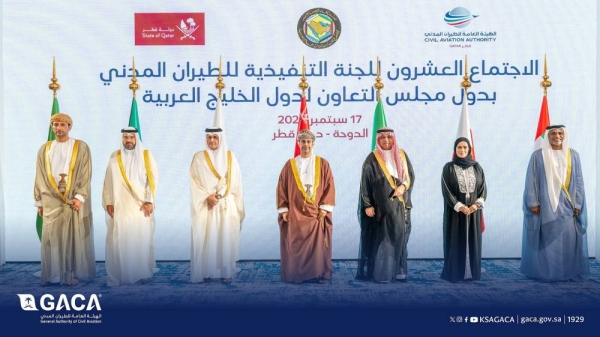Saudi Arabia, represented by the General Authority of Civil Aviation (GACA), recently took part in the 20th meeting of the Executive Committee of Civil Aviation of the Gulf Cooperation Council (GCC) countries. The delegation, led by GACA President Abdulaziz Al-Duailej, participated in discussions aimed at enhancing cooperation between GCC countries in civil aviation matters. The meeting, held in Qatar and hosted by the Qatar Civil Aviation Authority in collaboration with the GCC General Secretariat, brought together representatives from all GCC member states.
During the meeting, Al-Duailej highlighted the importance of unifying efforts and positions among GCC countries to support the civil aviation industry in the region. One of the key topics on the agenda was the mechanism of cooperation between civil aviation authorities in GCC countries regarding the unified program for assessing the safety of foreign aircraft. Additionally, discussions centered on the establishment of a unified upper domain for GCC countries, with recommendations being made on technical specifications for establishing a unified Gulf network for communications in navigation.
The meeting also addressed various other topics, including the culture of aviation security, training and exchange of expertise, and the achievements of GCC countries in the air navigation and aviation sector. By fostering collaboration and sharing best practices in these areas, the GCC countries aim to further enhance safety and efficiency in civil aviation operations across the region. The gathering provided an opportunity for members to discuss challenges and opportunities facing the industry and to work towards common goals for the benefit of all GCC nations.
Through participation in meetings such as this, GCC countries demonstrate their commitment to promoting cooperation and coordination in civil aviation matters. By working together, these nations can achieve greater harmonization of regulations, enhance safety and security standards, and improve the overall efficiency of air transport services in the region. Collaboration in areas such as the assessment of foreign aircraft safety and the establishment of a unified communications network reflects the shared commitment of GCC countries to advancing the aviation sector as a key driver of economic growth and development.
As the aviation industry continues to evolve, it is essential for GCC countries to stay abreast of the latest developments and technologies in order to remain competitive on the global stage. By participating in forums such as the Executive Committee meeting, Saudi Arabia and other GCC nations can exchange information, share knowledge, and learn from each other’s experiences. This collaborative approach enables them to address common challenges collectively and to identify new opportunities for cooperation and innovation in the aviation sector.
In conclusion, the 20th meeting of the Executive Committee of Civil Aviation of the Gulf Cooperation Council countries provided a valuable platform for GCC nations to strengthen cooperation, exchange ideas, and work towards common goals in the civil aviation sector. By coming together to discuss important issues such as aviation safety, training, and infrastructure development, GCC countries are able to leverage their collective expertise and resources for the benefit of all. Moving forward, continued collaboration will be essential in order to navigate the challenges and opportunities facing the aviation industry and to ensure sustainable growth and success in the region.


























